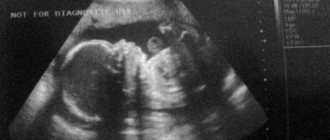Breastfeeding is just a stage in the relationship between mother and child. And one day the day will come when the last latch in your breastfeeding history will take place. Every nursing mother sooner or later wonders how to wean her child from breastfeeding. This usually becomes relevant when the child is between 1.5 and 2 years old. Whatever the reason for weaning, if thoughts about ending breastfeeding have started to appear in your head, then this article will be useful for you.
We talk about how to wean a baby and how to stop lactation in this article. You will learn what you absolutely cannot do in order to prevent breast problems and not disrupt the emotional connection with your baby.
So, if you have decided to stop breastfeeding your baby, be patient and determined to take action. Let's get started!
Emergency weaning of a baby
Weaning children under one year of age from their mother's breast is permitted only under strict indications. These include:
- Purulent mastitis or inflammation of the mammary glands
- Open forms of tuberculosis
- Syphilis
- Oncological pathologies requiring immediate treatment
- Decompensation of chronic diseases of the kidneys, liver, or cardiovascular system, in which breastfeeding can threaten the life and health of the mother
- Diabetes.
Breastfeeding should not be started if you have HIV infection, as the virus is transmitted through milk. Emergency weaning can be temporary or permanent. If the mother is acutely ill and cannot feed the child due to the medications she is taking or the danger of infecting him, she can express milk during the period of illness. Expressing will allow you to maintain lactation and resume feeding in the future. It also reduces milk stagnation and serves to prevent mastitis and lactostasis.
See also:
How does a woman’s breast milk burn out? Termination of lactation
Herb sage to stop lactationCessation of lactation
What should young mothers do if breast milk disappears? Termination of lactation
To reduce lactation during emergency weaning, doctors recommend that mothers limit drinking to 500-700 grams per day, if this does not harm their health. For many infections, fluids should not be restricted because they help remove toxins from the body. If the mother does not intend to resume breastfeeding, milk should not be expressed completely, only to relieve tension in the chest. It is not recommended to tie the breasts; this interferes with blood circulation, leads to stagnation of milk, and increases the risk of inflammation.
If lactation cannot be stopped using natural methods, special medications are prescribed. After all, gradual weaning in an emergency situation is unacceptable. Before weaning your baby from breastfeeding for urgent reasons, consult your doctor. Ask: “Can I resume feeding, or should I stop completely.” In many cases, there is a chance to maintain lactation. The main thing is to make the right decision together with the doctor, which will benefit the baby.
How to suppress lactation
After the child turns 1-2 years old, completing breastfeeding does not cause much difficulty. It will take time to stop lactation. To properly stop a woman’s milk, you can use several methods:
- Natural. Mom's milk decreases with fewer feedings. This type of weaning is safe.
- Folk remedies for lactation. Diuretic herbs, such as bearberry, can be used when milk production is gradually suppressed. Also helping to reduce its volume are: lingonberries, sage, mint.
- Breast compresses made from cabbage leaves. This is one of the effective ways to prevent lactostasis.
- Medicines. Any medications must be prescribed by a doctor.
- Products to suppress lactation. By learning the right diet, you can help your body stop producing milk.
To quickly stop lactation, the mother needs to reduce the amount of liquid she drinks.
Medication method
If there is a strong need to quickly wean a child over 1 year old from breastfeeding, you can use special medications that suppress lactation. The most well-known drugs today are Bromocriptine and Dostinex. The drugs contain a gestagen, which gives fewer negative effects compared to estrogen drugs that have the same purpose. To use this method there must be serious medical indications.
- To completely stop lactation, Bromocriptine should be taken for 10-14 days. After using the drug, it will be impossible to resume breastfeeding.
- In emergency cases: when mother and child are separated for a long time or when taking antibiotics, the doctor may prescribe Dostinex. This hormonal drug slowly inhibits lactation, so it is possible to restore breastfeeding. 3 hours after administration, the active substance begins to act. To suppress established lactation, you will have to take a course of 0.5 tablets every 12 hours for two days. The complete cessation of milk production will occur after about 14 days.
The drug method of weaning from breastfeeding is dangerous due to the destabilization of hormonal levels and multiple disruptions in the functioning of the woman’s body. Drugs that suppress lactation can only be prescribed by a doctor.
Rules for natural weaning
Many mothers wonder how to wean their baby from breastfeeding after a year or two. There is debate online about whether this should be done abruptly, or whether it is better to do it gradually. Will weaning from mother's breast be stressful for the baby, or will he bear it calmly? For example, Dr. Komarovsky advises weaning children abruptly, without delaying the process for several months. Many mothers find this cruel. Some women find the process of abrupt weaning difficult also because milk stagnates in their breasts, which causes discomfort.
If the mother decides to wean the baby gradually, it is necessary to systematically reduce the number of feedings. The process can be broken down into several stages:
- We remove daytime feeding that does not depend on sleep
- Removing feeding after nap
- Remove feeding before nap
- Remove feeding before bedtime
- We remove feeding after a night's sleep.
In order for weaning to be correct and not drag on for many months, each stage should be short. The most difficult thing to do is remove daytime feedings, especially when the baby is used to calming down near his mother’s breast. This period may take 1-2 weeks, depending on the age at which weaning begins. The remaining stages can be completed in a few days. If you feel fullness in your breasts, you can express milk.
What happens to the breasts after breastfeeding ends?
You can often hear a recommendation to stop breastfeeding until the involution stage. Involution of the mammary gland directly depends on the number of attachments, which naturally decrease as the child grows older. With a gradual decrease in the number of attachments, the amount of milk also decreases. The stage of breast involution occurs between 2 and 4 years of breastfeeding. It is characterized by the death of alveoli and small blood vessels. Gradually, the glandular tissue is replaced by adipose tissue, the cells die and lactation stops.
After breastfeeding is completed, the breasts return to their pre-pregnancy size. Sometimes, for a year or more after the last feeding, a few drops of milk may leak from the breast. This is a normal option and should not frighten a woman.
Breast structure
How to wean your baby off breastfeeding during the day
For many mothers, it becomes a problem how to wean a child from breastfeeding at 1 year old, since he often asks for the breast during the day. If there are no special indications to wean the baby urgently, you can continue to breastfeed him. After a year, gradually teach your baby that milk is food; you should not ask for the breast for any reason. At this age, a child can easily be distracted by an interesting activity, game, conversation or song. Communication with him should be more varied. Then the baby will no longer be so dependent on the breast, and further weaning will be painless.
You can try to wean your baby off from daytime feedings quickly. One day decide that the baby eats milk only before and after bedtime. If a child asks for breastfeeding, try to distract him by playing or talking. Show that you are busy and don’t have time to feed the baby. After one and a half years, many children easily forget about their requirements and get distracted. If the child insists on his own, try to be firm. It is advisable that the baby does not fall into hysterics, then it will be difficult to calm him down.
Try to walk more with your baby, teach him that you don’t feed him outside. Take your child’s favorite treats with you – cookies, fruit, juice or compote in a bottle. On a walk, the baby is more impressed, so he is more easily distracted. Some mothers practice going away for a few days or leaving home. For children who willingly stay with their fathers and grandmothers, this method is quite suitable. They gradually unlearn the fact that for any reason they need to run to their mother and ask for the breast. But babies, who are rarely without their mother, will experience separation hard. After returning, they will become even more attached to the breast, because they calm down near it.
If you manage to distract your baby several times a day and the baby forgets about his request, then you are close to success. Soon the baby will stop asking for the breast during the day and will be satisfied with just milk before bed. And complete self-exclusion is not far off. If difficulties arise, postpone weaning for a while, do not reduce the number of feedings. Perhaps your baby is not yet completely ready to part with the breast. An abrupt separation will upset him, and you will have to listen to his hysterics for several weeks.
GW after 2-3 years: is it necessary?
The child expands his space, spends more time outside the home, because working parents place him in a nursery. Breastfeeding ceases to be relevant and begins to create more problems than help in raising the baby.
Breastfeeding after 2 years is exhausting for most mothers. A child at this age receives all the necessary substances: protein, microelements and vitamins with regular food.
At two years old, the baby itself loses interest in breastfeeding. If this does not happen, then it is better to try to come to an agreement and explain to the child that there is no more milk.
Weaning before and after naps
A month has passed and your baby no longer asks for breastfeeding during the day. But he cannot fall asleep without her. How to wean your baby off breastfeeding before nap time? Try to use other ways to sprinkle the baby. Read a book to him, turn on music or sing a song yourself, watch a video together. If your baby's desire to suckle is caused only by your presence, leave him for a while. Say that you urgently need to do something, you will be back in a couple of minutes. At first, absences should be short so that the baby does not have time to cry. Then time lengthens. One day, the mother will return and find her baby sleeping peacefully.
Many children wake up crying and calm down only when they suckle at the breast. You can try to immediately pick up the baby in your arms and carry it into the kitchen. It is advisable that the mother does not lie next to the child when he opens his eyes. It's okay if he whines and mom will come when he calls. Hungry children can be offered something to eat or drink milk from a bottle immediately after their nap. Some babies sleep well outside in the summer. If they wake up during a walk, they have time to get distracted by looking at their surroundings. Try to put your child to sleep during a walk at least once a day. This method of weaning after a nap is also acceptable.
Olga, 30 years old, breastfed her son for a year and a half:
I consider myself a very anxious mother; it is important for me to calculate everything in advance and have complete control over everything. When I decided that it was time to stop breastfeeding, I approached the process “by science.” We started preparing in advance: we introduced a strict regime, made evening swimming mandatory, and my son started drinking kefir at night. And water - at night.
This went on for about two months, all this time I was slowly delaying giving him the breast. When he was clearly hungry, I fed him regular food - porridge, yogurt, soup. Then, to distract from the usual sucking, we went to play and sang songs.
I constantly praised him that he was good at eating with a spoon on his own, emphasizing that he was a big boy.
When he woke up at night, she offered him water. The demand for the breast gradually went to a minimum: I gently but persistently refused my son, hugged him, talked to him. And if he asked too zealously, she let him kiss for a short time - but this gradually stopped.
When it became clear that the child would not react too painfully to complete weaning, she exhaled and stopped breastfeeding completely. She went to bed in a bra and a T-shirt. For several days the baby tried to rebel, but for just a couple of minutes, then he calmed down and fell asleep after drinking kefir.
I think it’s all about responding adequately to his needs. If I had seen that he definitely lacked breasts, I would have extended the weaning for a longer time. In the end, it took us about three months to do everything.
Weaning at night
It is most difficult to wean your baby from mother's milk at night. Children from one to two years old still wake up often. Many women find it easier to feed and calm them than to look for ways to wean them from this habit. As a result, children eat at night until they are 2-3 years old. If it doesn't bother anyone, there's no need to worry. But often mothers become overtired, and night feedings become torture for them. A radical way of weaning is to leave the baby with dad or grandma for several nights, and sleep in another room. But most mothers prefer a gentler weaning. You can distract your child at night and fall asleep with the help of water, milk or consistent baby formula.
To prevent your baby from asking for mother's milk before bed, you can replace it with a bottle of baby formula or water. It is best if the father gives it, because the mother is associated with the breast. Be sure to read a book to your baby before going to bed and carry it in your arms. When children have trouble falling asleep, it is advised not to play with them too actively in the afternoon. In the evening, it’s a good idea to bathe your baby in a warm bath with chamomile and lemon balm, which have a calming effect on the nervous system. A short walk promotes sound sleep.
Children eat mother's milk for the longest time in the morning, immediately after falling asleep. If all other stages have been completed, do not rush to remove this feeding. Let the baby better adapt to the new conditions of his life. Another month will pass, and he will show less interest in sucking. If you are determined to wean, try to caress the baby in the morning, carry him in your arms, and give him milk to drink. Perhaps he is just a morning person and does not like to sleep for a long time. Then you can wake up with him, feed him porridge in the kitchen and start the game. Most likely, the child will fall asleep closer to noon. Fall asleep with him to rest.
Basic methods of weaning
If a two-year-old child needs to be weaned from breastfeeding, there are several ways to do this.
- a trip to visit relatives for a week, the child should stay with grandma or dad;
- start drinking less liquid so that the amount of milk goes down, it will be difficult for the baby to suck it out;
- reduce feeding time;
- reduce the number of feedings, skip feedings and replace them with solid food, redirect the baby’s attention;
- increase physical activity to remove fluid from the body;
- stop expressing milk;
- replace breast milk with formula or porridge;
- give up food to improve lactation;
- refuse to sleep together with your toddler and hide your breasts under clothes;
- teach the child to fall asleep without the mother's breast, tell fairy tales, and not rock him in his arms.
When the baby has already celebrated his second birthday, he begins to act quite consciously. The little one understands perfectly well that in order to get milk he needs his mother’s breast. However, the mother should talk to the child, tell him that he experiences discomfort during feeding, that he is already big and can easily eat on his own without the help of his mother’s breast. Naturally, hysterics and numerous demands to return the “titya” are not excluded, but you should not indulge your whims, but endure the ordeal with dignity.
What not to do when weaning your baby
Among the many tips on how to wean off breastfeeding at 2 years of age or earlier, you can hear some downright stupid ones. For example, lubricate the nipples with brilliant green, mustard or pepper. This will not only upset the baby and burn his mouth, but will also harm the mother. Do not bandage your chest tightly. Doctors have long agreed that such manipulation only increases the likelihood of lactostasis without affecting the amount of milk at all. You should not stop breastfeeding before one year unless there are clear medical indications for this.
Is it right to wean your baby in the summer? There is an established opinion that during this period the risk of intestinal infections increases, and mother's milk protects the baby from them. If the baby is less than two years old, this situation is relevant. After all, maternal antibodies will not reach the baby if you replace milk with formula. The immune system of older children is already well formed and the timing of gradual weaning does not play such a big role.
You should not stop breastfeeding when your baby is sick. Health problems in themselves are stressful for a child; it is not worth exposing him to additional worries. In addition, maternal antibodies will help the baby cope with the disease faster. It is also not recommended to stop feeding when moving, on vacation or in the country. Children in infancy feel insecure in a new environment; maternal warmth helps them cope with an unusual situation.
A few words in conclusion
There are many recommendations on how to wean children from breastfeeding. Each mother must choose her own way. Before taking such a step, you need to listen to yourself and understand whether mother and baby need this. After all, women often decide to wean at the insistence of relatives and friends, who assure that the baby is already too big. First of all, you need to listen to yourself and do as you see fit. There is no single rule for how many years or months you can breastfeed a child. Every mother should tell herself: “I can feed my child as much as he and I want.”
It happens that it’s time for mom to go to work. In this regard, she is worried about how to wean her child from breastfeeding. Don’t worry, your grown-up baby will manage without milk during the day, and night feedings will help him better adapt to his mother’s absence for a long time. Some mothers feel tired and attribute this to breastfeeding. Try to just relax, sleep with your child during the day. You can’t redo all the things at home, and the moments of closeness with your baby that breastfeeding gives you won’t be repeated. These are the ones you will remember many years from now, when your child grows up.
Mistakes when ending breastfeeding
Many of these are based on myths about breastfeeding or long-held misconceptions related to a lack of information about lactation and breastfeeding.
Drug suppression of lactation
While taking these drugs, your well-being is sharply affected; they have many unpleasant side effects, some of which, for example, depression, are very difficult to combine with the need to care for a child. The drugs cause disruption in the hormonal system, because nature has planned a certain alternation of hormone production at each stage: pregnancy-childbirth-breastfeeding. It may turn out that all this torment was in vain, because lactation often returns after stopping the medication. So this method can only be considered as the most extreme!
Chest tug
Grandmother's method has long been recognized as the most dangerous in terms of complications - it provokes a huge number of mastitis, since physical compression of the breast, instead of stopping milk production, only causes clogging of the ducts.
Fasting and limiting drinking
According to modern data, the amount of milk depends only on the amount of the hormone prolactin. For this reason, a lack of fluid will affect the mother’s well-being rather than lactation.
Fact
In ancient times, women sought to maintain breastfeeding for as long as possible. So, in the event of a hungry period, the child was not left without food.
Mom leaving for weaning
If the child is not used to being separated from you for a long time, deprivation of both mother and breast will be too much of a shock for him and may have a negative impact on his health and, in the future, on the relationship between you and the child.
Smearing something tasteless on your nipples
Often this substance is also burning, which causes irritation to the delicate skin of the breast and mucous membranes of the baby.
Completing breastfeeding before the mother goes to work
The baby’s worries due to lack of communication with you will only worsen if at the same time he loses his breast. Working full time and maintaining breastfeeding is an affordable task.
Important
When finishing breastfeeding, do not keep your worries to yourself and drive away thoughts of your own guilt. Love for a child is not limited to breastfeeding. You can still give him the most important thing - your care.
The child himself refused the breast
There is nothing wrong with this if the child is already about one and a half years old or more. Most likely, he is already ready to stop breastfeeding both physiologically and psychologically. Children under this age refuse to breastfeed due to excessive use of pacifiers, mother's refusal to feed at night, too active introduction of complementary foods, or simply as a sign of protest. In this case, you should seek help from a lactation consultant and do everything to return to breastfeeding.
Stopping feeding due to concerns about the mother's health
Physiologically, the female body is ready to complete lactation only one and a half to two years after childbirth. Stopping feeding before two years often provokes lactostasis and depression due to sudden hormonal changes.
Advice
To reduce swelling and a feeling of fullness in the chest, apply cold compresses with serum or juicy cabbage leaves.
Stopping feeding due to breastfeeding problems
Some doctors think that after a certain age it is easier to stop breastfeeding than to solve any problem. In fact, often the problem does not go away, but new ones appear.











